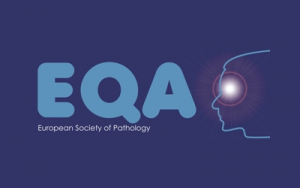The use of biomarkers for the personalized treatment of cancer is gaining relevance every day. This approach uses biomarkers to select treatments that are tailored to individual patient tumor profiles and increases the outcome for cancer patients. Treatment decisions are based on the test results of medical laboratories that perform biomarker tests on cancer biopsies. Given that incorrect tests lead to the administration of ineffective therapies or therapies that may have detrimental effects for the patient, these tests must be accurate and highly reliable.
The European Society of Pathology (ESP) has established world-wide EQA programs for biomarker testing in colorectal cancer (CRC) and in non-small-cell lung cancer (NSCLC). The practical organization of these EQA schemes is done in collaboration with a European working group and the Biomedical Quality Assurance Research Unit of the KU Leuven – University of Leuven.
The ESP EQA schemes are accredited by BELAC conform the ISO 17043, which is the international standard for proficiency testing.
The ESP Colon EQA Scheme (http://kras.eqascheme.org) evaluates the reliability of RAS and BRAF testing in CRC, including the correct identification of the presence and type of mutations and the writing of a clinical report with an interpretation of the results found.
The ESP Lung EQA Scheme (http://lung.eqascheme.org) evaluates the reliability of biomarker testing in NSCLC, including the identification of the presence of EGFR mutations, ALK rearrangements and ROS1 rearrangements, as well as correct interpretation of test results.
For ALK and ROS1 analysis, several subschemes are available for different methodologies: FISH (including digital images), IHC and RT-PCR.

